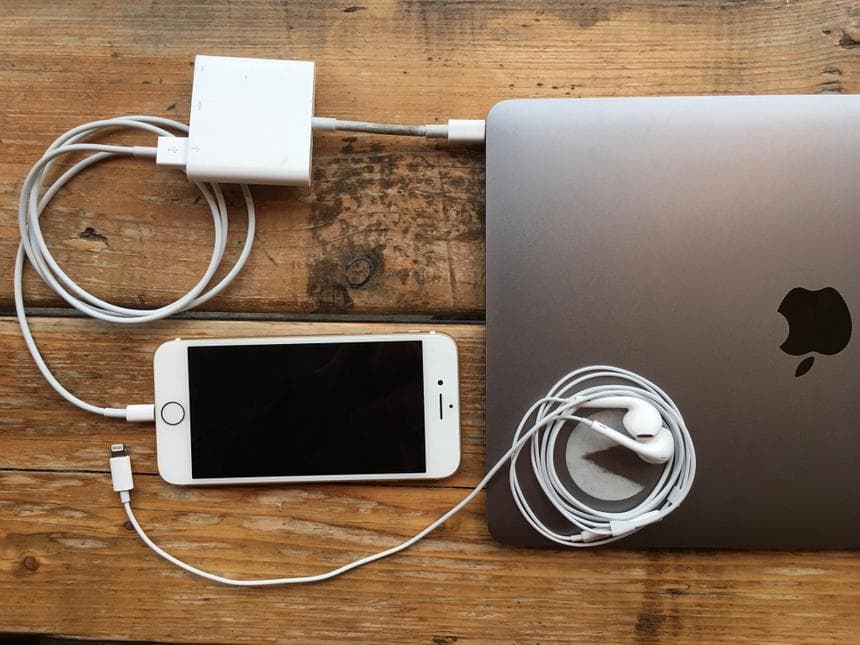Be angry with yourself, not Apple

Recentely Apple released its new MacBook Pro and we all have been flooded with posts and comments by angry developers explaining why it sucks and why they won’t be able to upgrade.
These are some of the top results obtained by searching “macbook” on Hacker News:
- New MacBook Pro Is Not a Laptop for Developers Anymore
- Ask HN: Is Dell XPS Developer Edition a Good Replacement of Macbook Pro?
- Apple’s new MacBook Pro kills off most of the ports you probably need
- Ask HN: What laptop should I get instead of a Macbook Pro?
- Apple is killing off MagSafe, one of the MacBook’s best features
- Ask HN: Would You Upgrade to the New MacBook Pro?
- WTF Is Apple Thinking with the New MacBook Pro and Touch Bar?
Among these developers, some of the most enraged are planning to switch or to go back to a GNU/Linux distribution.
All these people are angry with Apple, but they should be angry mostly with themselves.
They spent an enormous amount of their time to learn and use the proprietary OS they bought and to master all its cool and expensive apps, which work perfectly, without realizing the dependence they were developing. They became addicted to Apple’s products and its ecosystem, simply because maybe they used it for 10 years or more.
Therefore what happens when the new CEO decides something that you don’t agree with? When they release a new product that you don’t like, because they removed the Escape key? Nothing. You are in deep trouble. You start complaining. No alternatives. Either you accept their word or you are out.
It is quite useless to get mad and criticize Apple the first time you don’t like their decisions, when throughout the years you always loved and supported them. When you realize that you are no more a customer but the product, since the cost to switch to something else became so high you have to accept their every decision. When you have no voice and your complaints are useless.
I think you should ask yourself if having the best products was worth the lock in.
The moral case for Freedom in Software
There is one last thing that I would like to point out in this story.
To all the people who are willing or thinking to switch to GNU/Linux, because they do not want to upgrade their MacBook, I would like to ask: What would have happened if everybody acted like you and switched to Apple? Would you still have a good distro to use right now?
Well I don’t think so. We would all be in deep trouble. Therefore I feel like it is almost morally mandatory to continue to use GNU/Linux, otherwise in the long run we will all lose our freedom to choose.
Apple’s philosophy
I do not buy nor use Apple’s products because I do not approve their philosophy. Their philosophy is to believe they know better than me what is good and better for me without giving me the chance to choose or opt-out.

Comments
The point is: the more you invest in a propriety ecosystem, developing for a certain company's products on that same company's products, the less flexibility and freedom you have to change.
Apple's primary goal is consumer adoption; developer needs are necessarily secondary. To demand that Apple cater to the latter misunderstands the company's priorities.
Well, the same applies to ANY OS out there. I can't complain if Canonical decide to switch to a new desktop UI. Same with any other "free" distro. In the end, it's people making decisions. It has nothing to do with being open or closed source.
The only relative advantage for open source software is that given enough people with the same problem, someone might dedicate some time to fix that issue. But a lot of times you might be left on your own.
Yeah, like the freedom to choose our own init systems! ...... oh wait.
Software simply being free or open doesn't automatically mean we are given choice. We are dealing with a steady erosion of choice in open source software these days, too.
Mozilla decides to drastically redesign their user interface, removing tons of flexibility, and next on the chopping block are their more-powerful extensions. Gnome decides to totally throw out the old paradigm of desktop user interfaces with version 3. Every major Linux distro jumps on board with systemd. It's great if you like these changes, but just like with Apple's changes ... it sucks to be you if you don't. No developers, whether the apps be proprietary or open source, seem to want to give the users any choices anymore. No, they always know better than their users.
Just look at browsers alone: today we have about as much choice in web browsers as we do in cable companies to provide us with high-speed internet access, or in which cola brand we want at restaurants. The open source status of the two most popular ones doesn't amount to much.
The world is increasingly being consumed by software monoliths that want to control the entire experience from top to bottom. The idea of doing one thing and doing it well, and letting people build systems out of smaller components mixed and matched to their liking, has been dying a long, slow death.
There is still, of course, choice. You can run Pale Moon, or Openbox, or Haiku. But you pay dearly for being on the fringe of the fringe. 99% of the market is wrapped up in ~3 choices. And Linux as a whole isn't faring much better than Apple these days.
We can't even really fight against this with our own code because everything has been steadily soaring in complexity. Nobody can write a modern browser on their own anymore. Hell, you can't even write a web server on your own anymore -- HTTP/2 and TLS are frighteningly complex. That used to be a ten minute task back in the day. Want to write an OS? Good luck even getting a USB stack up and going on your own. Forget about accelerated graphics, that's never gonna happen.
Or you can just use Pale Moon which is literally a Firefox fork without the Australis UI.
> and next on the chopping block are their more-powerful extensions
They're not "on the chopping block". If they stop working, it's only because they haven't been maintained for a long time anyway. Mozilla doesn't break backwards-compatibility for the heck of it, it needs to do these changes to get to the same level of security that's offered by Chrome (with its multi-process architecture), to get to the next level of performance that's hinted at by Servo, and to get rid of the massive maintenance nightmare that is XUL.
(I don't say that the transition won't be painful at places. I'm very worried that Vimperator does not support Electrolysis yet.)
> Gnome decides to totally throw out the old paradigm of desktop user interfaces with version 3.
Or you can just use Mate, which is literally a Gnome 3 fork with the Gnome 2 UI.
> Every major Linux distro jumps on board with systemd.
Yes, because it has tremendous technical advantages for distributors. And it's also good news for independent software vendors because it steamrolls over a lot of useless incompatiblities between distributions, so if we see more commercial software for Linux in the future, systemd might play a small part in it. (Of course, stuff like that doesn't make the frontpage.)
And besides, no one is that locked in to Apple. The HN rage is all about being forced to make that choice and potentially spend time moving on switching. Welcome to life.
There's really nothing new here. The article doesn't present any arguments for why you should actually be mad at yourself and also fails to suggest alternatives.
While Apple is not your typical computer hardware company, there's nothing here that doesn't apply to ANY company.
FOSS is hardly free of similar issues. Linux wasn't always a mostly smooth installation, it used to be firmly for tinkerers only. Not everyone was able, or willing, to spend the time making the broken things just work. More recently Gnome 3 springs to mind, and resulted in a similar scale of angry reaction.
I used to wonder why no company had tried to make something as well integrated as OSX for their own laptops. Most of the core is FOSS. Someone like Dell or even IBM before selling off Thinkpads could have achieved something significant with Linux or BSD.
Edit: I'm interested - what's worthy of downvotes here? Have I got something wrong or is it merely difference of opinion?
I bought a laptop on 2012 and it's been going strong since that day. Its price was ~$1,200 USD ($12,000 MXP) and since then I've invested ~$150 USD on its maintenance. Altough it's old, it remains fast (Ubuntu boots in 13 seconds), usable and it's been a great investment, also it's very lightweight. And its brand is Samsung. I'm really sad they've shifted focus on their business to tablets and hybrids.
I've heard the Dells are quite good too, as well as the Lenovo. There's a world outside Apple, and I think that would be good for the market—maybe if they didn't have such a massive monopoly, they would think more of other markets, including power users.
How are they supposed to allow all of their customers to choose their preferred hardware? They don't have to, and it would be wildly inneficient to try to do so. That's what the free market is for. People wanted a different/smoother experience than what Linux was giving them, and were willing to pay for it. Some of us were happy messing around on the command line, and didn't need to buy Apple products to be productive. It doesn't mean they have to be everything to everyone.
In fact you do have a right to complain. And if you enjoy using Apple products, you ought to do so in the hope of influencing future Apple design decisions.
Is it merely genetics that make the Apple touch experience so much more intuitive than the competing products, or is it truly superior?